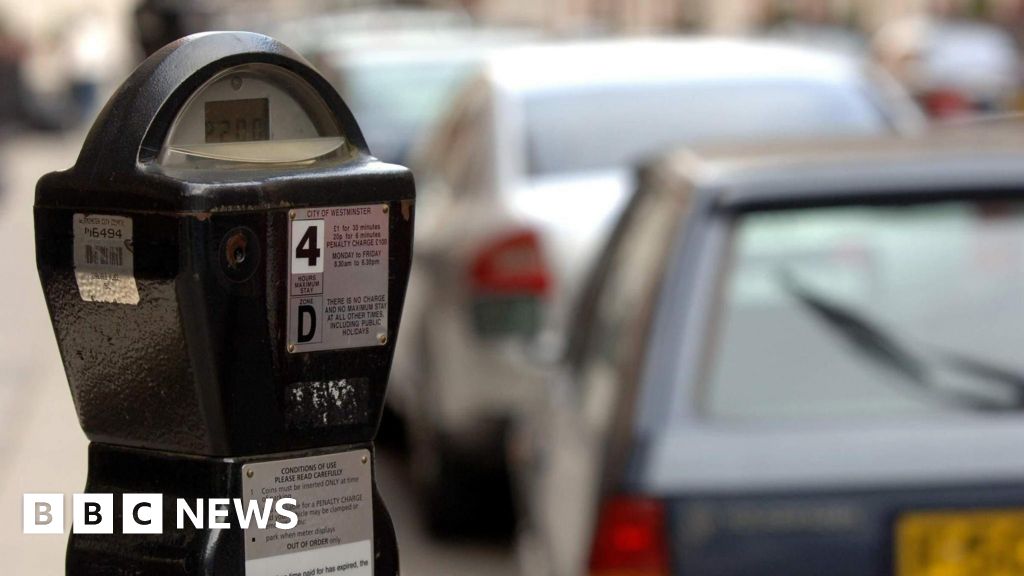This article is part of The D.C. Brief, TIME’s politics newsletter. Sign up here to get stories like this sent to your inbox.
Talk to Republicans around Washington and you’ll get a smattering of reasons why the government shutdown is coasting into its second week: taxpayer-funded sex reassignment surgeries, health care for undocumented immigrants, “massive handouts” to folks who should be deported.
Talk to Democrats, and you get a similarly disjointed litany of reasons: millions of Americans could lose their health coverage, those lucky to dodge the axe will get much higher bills—this is what voters sent them to Washington to do. Even Jeffrey Epstein comes up.
The two parties cannot even agree on whether they’re talking to each other. President Donald Trump told reporters on Monday that the White House was having conversations with Democratic lawmakers about finding an off-ramp to the shutdown, which started last Wednesday. The top Democrat in the Senate, Chuck Schumer of New York, issued a statement basically saying nuh-uh, but he’d be open to it.
“Well, there aren’t any official talks going on,” Sen. Jeanne Shaheen, a Democrat from New Hampshire, said while leaving the Capitol on Monday. The clear-eyed legislator is not running for another term next year, making her an honest broker in these talks. That does not mean she has the power to unjam a standoff that has become fiercely personal to both sides.
Meanwhile, staffers on Capitol Hill and their lobbying pals on K Street are treating this week as a wash. In chats and texts with a dozen or so staffers, the widespread expectation is that the lapse in government funding—impacting about 750,000 feds and costing $400 million a day—is here for a spell. Congressional offices and the administration alike have been nixing meetings that are not explicitly about the shutdown, killing any sidebar conversations about other legislation.
Put in the most basic of terms, D.C. is a mess, everyone knows it, and no one seems eager to find the exit. It’s as if everyone is aboard the Speed bus but not looking for a way to help Keanu stop the chaos, to steal an analogy from one former Senate chief of staff, a Democrat. Another GOP aide was more blunt: “Totally F—ed is our soundtrack,” she said, taking a lyric from the Broadway burner Spring Awakening. A third Hill insider, a former member of Democratic Leadership, was even more cynical. “Can you even tell me what we are fighting about at this point?” he asked.
Judging from the impasse at the Capitol, the answer is a resolute no. That does not mean it’s any closer to ending.
Trump, it seems, understands that the shutdown isn’t playing well. White House aides are snipping at Republican colleagues on the Hill that this is on them to sort out. No one—not the White House, not Hill Republicans, not Hill Democrats—is on solid footing right now; Trump and congressional Republicans are at a 52% disapproval number, while congressional Democrats are at 49%, according to CBS News’ polling.
Those numbers are national. An informal gut check of my Rolodex indicates it’s even worse locally. At the Environmental Protection Agency, 89% of staffers have been furloughed, according to one tally. At the Education Department, that rate is 87%. Commerce? 81%. Labor? 76%. Housing and Urban Development? 71%.
Bluntly, it’s a bloodbath for career feds who monitor clean air, administer student loans, promote American businesses, track American workers, and house our poorest neighbors. Many are trying to stay optimistic, but few believe this will be short-lived.
By a constellation of good luck and better politics, most federal employees got their last paycheck in the final hours before the shutdown. Their next check—covering pre-shutdown work—should still arrive. That means real pain—workers who cannot pay bills, make rent, cover day-to-day life—won’t hit until the end of this month for some civilians in corners of the government that still have funding. That spares lawmakers any real costs right away, but the upcoming holiday weekend might dog them at home with their neighbors. But some could miss pay as soon as Friday. Military members are eyeing Oct. 15, when their next paycheck could be in limbo.
House Speaker Mike Johnson is not calling back his Republican members this week, sparing them from the uncomfortable questions in hallways at the Capitol. The Senate remains in town, but on Monday dismissed for a fifth time another attempt to pass a stopgap spending bill that would get them through most of November. And on Tuesday, Senators used an acrimonious oversight hearing with Attorney General Pam Bondi to press her on politically sensitive decisions made in the case against convicted sex offender Jeffrey Epstein that may have shielded powerful players—including Trump—from scrutiny.
(The House, too, has its own Epstein troubles, as Johnson has refused to swear-in a new Democratic member from Arizona who would shrink his majority and perhaps force a tricky vote to see what the Justice Department knows about the man who died while awaiting trial on further charges.)
Also on Tuesday, the top lawyer for the White House’s budget office said federal workers who were furloughed may not be entitled to back pay—despite the clear fact that Trump signed into law a 2019 provision that guaranteed it. The White House quietly removed a part of its website on Friday that asserted that “both furloughed and excepted employees will be paid retroactively.”
Trump added his own element of uncertainty on Tuesday.
“I would say it depends on who we’re talking about,” Trump said. “I can tell you this: The Democrats have put a lot of people in great risk and jeopardy, but it really depends on who you’re talking about. But for the most part, we’re going to take care of our people. There are some people that really don’t deserve to be taken care of, and we’ll take care of them in a different way.”
For now, the nation’s capital remains stuck in neutral. Lawmakers cannot even agree if anyone is at the wheel, let alone the destination.
Make sense of what matters in Washington. Sign up for the D.C. Brief newsletter.

 1 month ago
18
1 month ago
18










 English (US) ·
English (US) ·